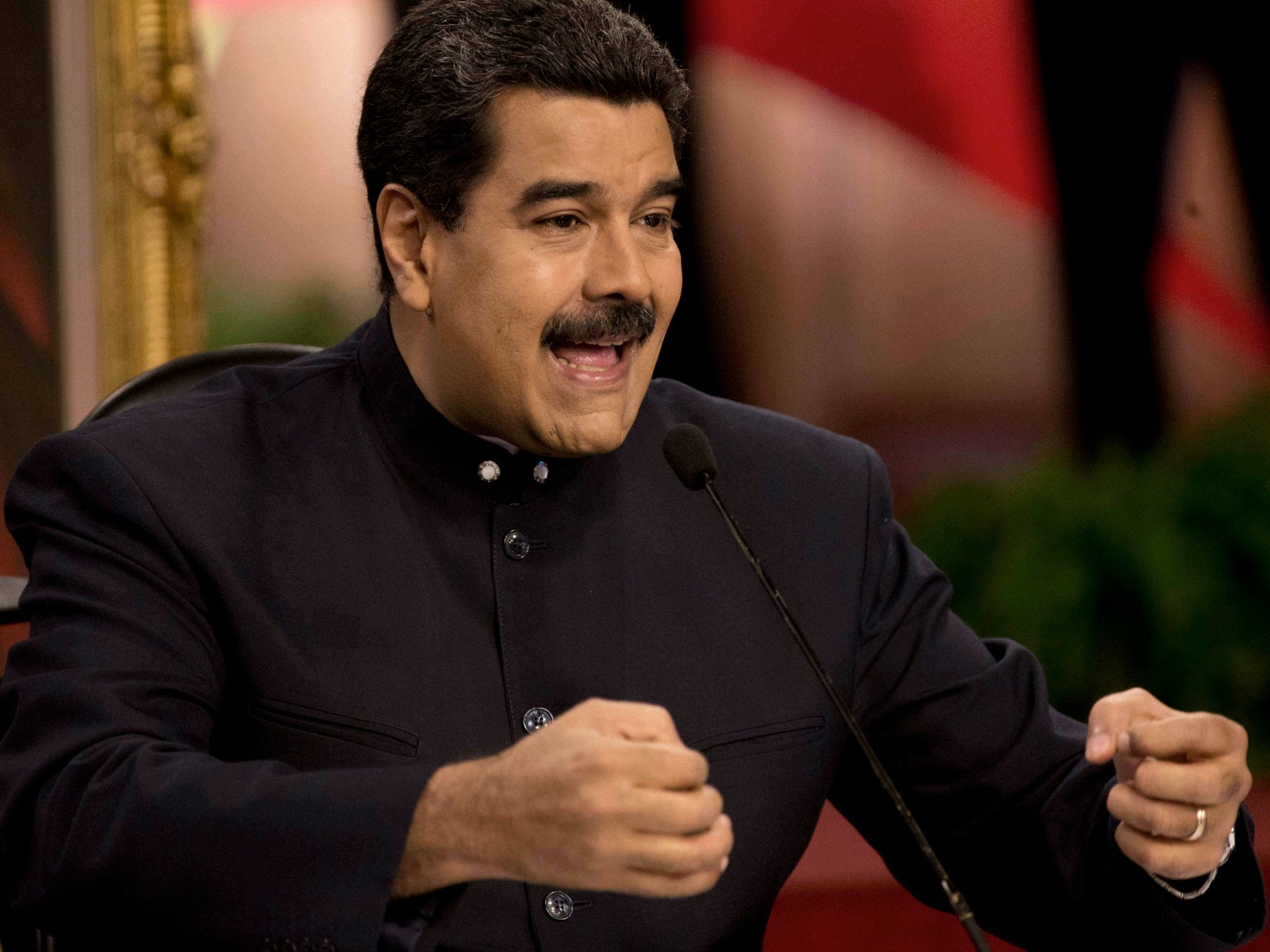Venezuela plans to launch an oil-backed cryptocurrency
The announcement highlights how US sanctions are hurting Venezuela’s ability to move money through international banks

Your support helps us to tell the story
From reproductive rights to climate change to Big Tech, The Independent is on the ground when the story is developing. Whether it's investigating the financials of Elon Musk's pro-Trump PAC or producing our latest documentary, 'The A Word', which shines a light on the American women fighting for reproductive rights, we know how important it is to parse out the facts from the messaging.
At such a critical moment in US history, we need reporters on the ground. Your donation allows us to keep sending journalists to speak to both sides of the story.
The Independent is trusted by Americans across the entire political spectrum. And unlike many other quality news outlets, we choose not to lock Americans out of our reporting and analysis with paywalls. We believe quality journalism should be available to everyone, paid for by those who can afford it.
Your support makes all the difference.Venezuelan President Nicolas Maduro looked to the world of digital currency to circumvent US-led financial sanctions, announcing on Sunday the launch of the “petro” backed by oil reserves to shore up a collapsed economy.
The leftist leader offered few specifics about the currency launch or how the struggling OPEC member would pull off such a feat, but he declared to cheers that “the 21st century has arrived!”
“Venezuela will create a cryptocurrency,” backed by oil, gas, gold and diamond reserves, Maduro said in his regular Sunday televised broadcast, a five-hour showcase of Christmas songs and dancing.
The petro, he said, would help Venezuela “advance in issues of monetary sovereignty, to make financial transactions and overcome the financial blockade”.
Opposition leaders derided the announcement, which they said needed congressional approval, and some cast doubt on whether the digital currency would ever see the light of day in the midst of turmoil. The real currency, the bolivar, is in freefall, and the country is sorely lacking in basic needs like food and medicine.
Still, the announcement highlights how sanctions enacted this year by US President Donald Trump’s administration are hurting Venezuela’s ability to move money through international banks.
Washington has levied sanctions against Venezuelan officials, PDVSA executives and the country’s debt issuance.
Sources say compliance departments are scrutinizing transactions linked to Venezuela, which has slowed some bond payments and complicated certain oil exports.
Maduro’s pivot away from the US dollar comes after the recent spectacular rise of bitcoin, which has been fueled by signs that the digital currency is slowly gaining traction in the mainstream investment world.
The announcement bewildered some followers of cryptocurrencies, which typically are not backed by any government or central banks. Ironically, Venezuela’s currency controls in recent years have spurred a bitcoin fad among tech-savvy Venezuelans looking to bypass controls to obtain dollars or make internet purchases.
Maduro’s government has a poor track record in monetary policy.
Currency controls and excessive money printing have led to a 57 per cent depreciation of the bolivar against the dollar in the last month alone on the widely used black market. That has dragged down the monthly minimum wage to a mere $4.30 (£3.20).
For the millions of Venezuelans plunged into poverty and struggling to eat three meals a day, Maduro’s announcement is unlikely to bring any immediate relief.
Economists and opposition leaders say Maduro, a former bus driver and union leader, has recklessly refused to overhaul Venezuela’s controls and stem the economic meltdown.
He could now be seeking to pay bondholders and foreign creditors in the currency amid a plan to restructure the country’s major debt burden, opposition leaders said, but the plan is likely to flop.
“It’s Maduro being a clown. This has no credibility,” opposition lawmaker and economist Angel Alvarado told Reuters.
“I see no future in this,” added fellow opposition legislator Jose Guerra.
Maduro says he is trying to combat a Washington-backed conspiracy to sabotage his government and end socialism in Latin America. On Sunday he said Venezuela was facing a financial “world war”.
Reuters
Join our commenting forum
Join thought-provoking conversations, follow other Independent readers and see their replies
Comments